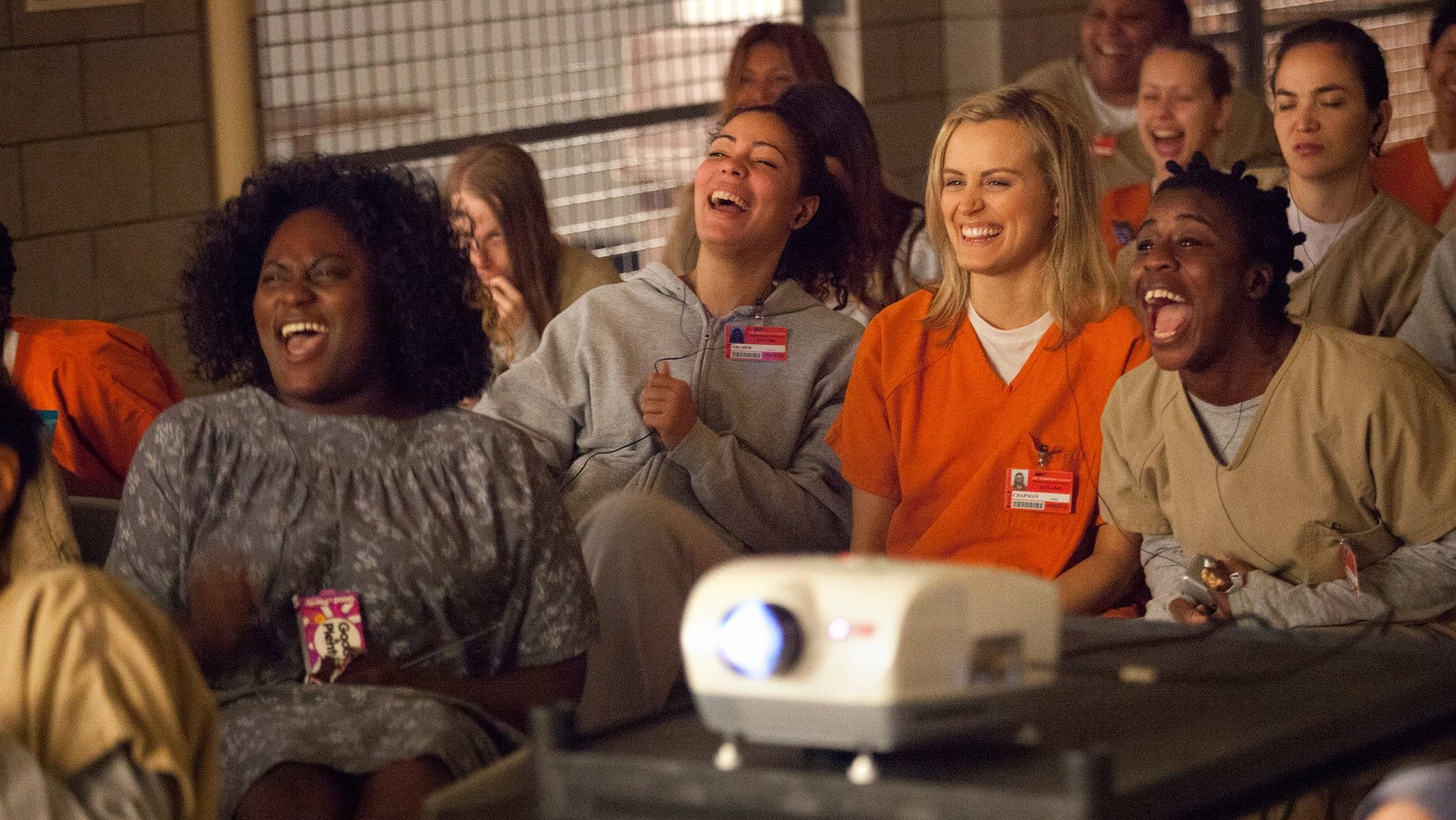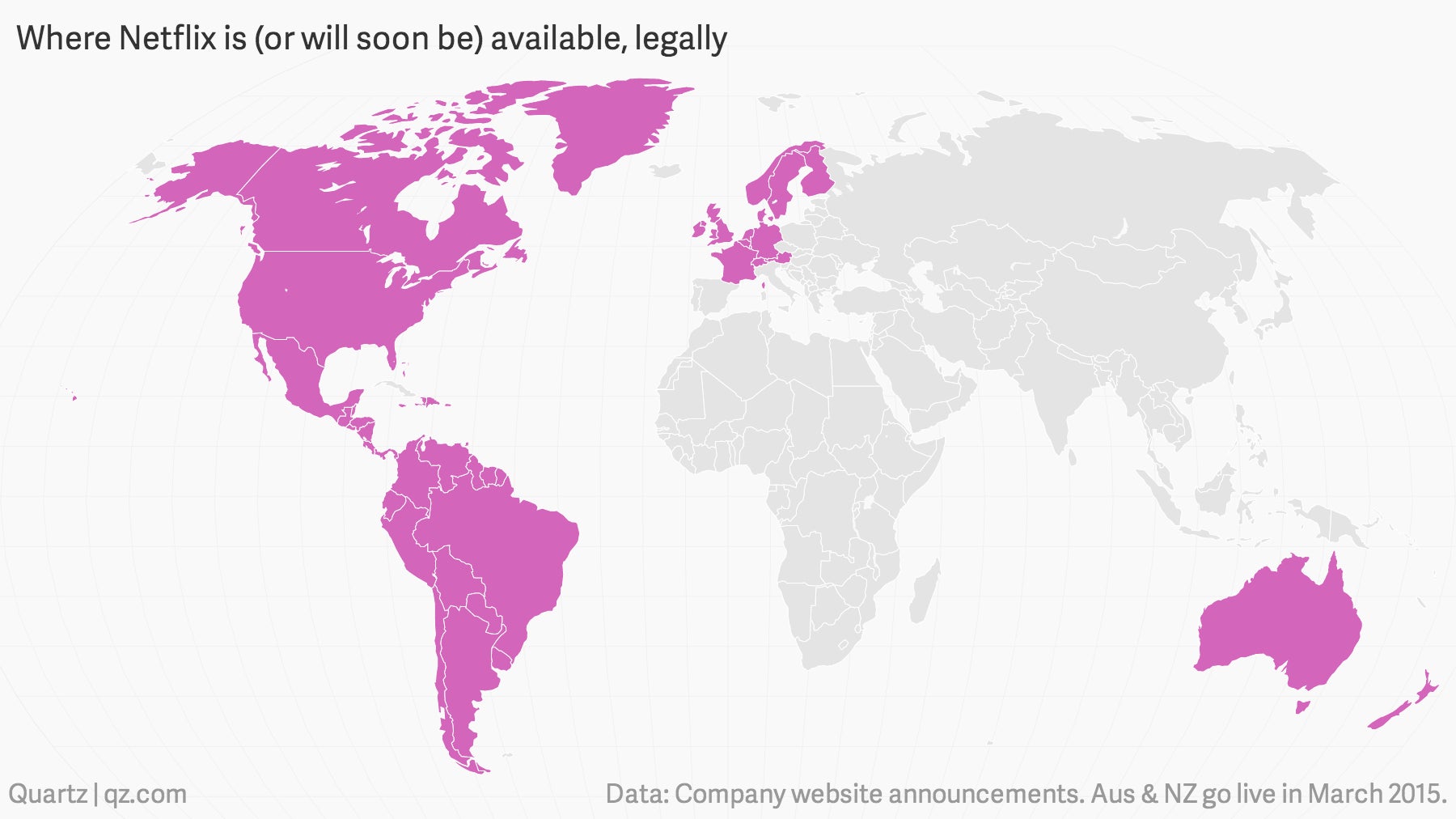The problem with Netflix’s overseas expansion
Netflix’s relentless march to world domination continues. The US-based streaming service finally confirmed plans overnight to launch in Australia and New Zealand next March.


Netflix’s relentless march to world domination continues. The US-based streaming service finally confirmed plans overnight to launch in Australia and New Zealand next March.
As things stand, Netflix is basically live everywhere in the Americas (except for Cuba). It has been expanding its presence in Europe, with high-profile launches in Germany and France in recent months, although large swathes of that continent, and all of Asia and Africa, remain (formally) untouched by its footprints.

The Australian launch actually provides a hint about why further expansion for Netflix’s service might actually be not as straightforward as it sounds. Like others around the world, thousands of Aussies already get the US version of Netflix using masking services that spoof their location (one survey suggests it is already the second most paid popular content company there, before even launching).
The costs of accessing content and software (among other things) are disproportionally high Down Under. As a result, the nation is a world champion when it comes to video piracy.
Now, it would make sense for all of these Australians accessing the US version of Netflix to switch the official Australian version once it goes live in March, assuming it is priced reasonably. But there are also reasons to think it might not be that simple.
Chief among them is the fact that the Netflix Australia/New Zealand service will doesn’t appear to include the streaming service’s two biggest original hit shows thus far, House of Cards and Orange is the New Black, at least upon launch. There is no mention of these shows in the official press release, and a spokesman for Netflix declined to comment beyond the release. “Stay tuned,” he said in an email.
The Australian rights for the current seasons of those shows (which are actually produced by external production companies) were—strangely enough—tied up by the dominant pay TV operator in the country, Foxtel, which is controlled by Rupert Murdoch’s News Corporation. Maybe this situation will be rectified by the time of launch.
Even if it isn’t, it remains unclear whether Netflix’s content offering will be as complete in Australia as it is in the US. Take Canada, where Netflix has been live since 2010: There, the use of virtual private networks by Canadians to access to the more comprehensive US service remains widespread.
A quick internet search suggests Netflix is being accessed in other big markets where it is not yet officially live, so it will be interesting to see if it continues to encounter these quirks as its inevitable expansion continues. If nothing else, Netflix’s march into new territories may highlight just how weird, arbitrary and outdated the system for international licensing of content has become.